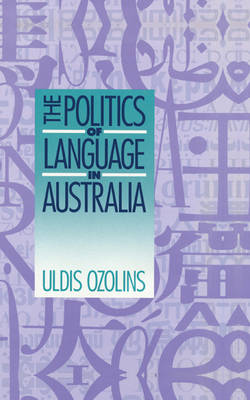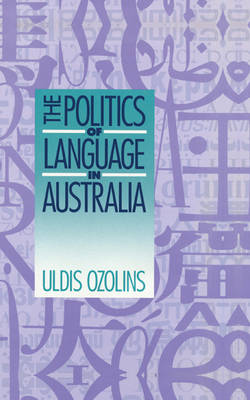
- Afhalen na 1 uur in een winkel met voorraad
- Gratis thuislevering in België vanaf € 30
- Ruim aanbod met 7 miljoen producten
- Afhalen na 1 uur in een winkel met voorraad
- Gratis thuislevering in België vanaf € 30
- Ruim aanbod met 7 miljoen producten
Zoeken
Omschrijving
This book traces language policy in Australia from World War II to the present, examining the changes in government policy over this time, and changes in major public institutions due to the presence of these languages. The major focus is on changes in the education and broadcasting systems, with attention also to interpreting/translating, industrial relations and the role of languages in diplomacy and trade. Dr. Ozolins places language in the context of multicultural politics and shows that government language policies that were once prompted by suspicion now accept and even encourage cultural and linguistic maintenance. In fact Australia has introduced many innovations of international significance in language policy, particularly with the National Language Policy, announced in 1987. This policy marked a decisive change in political assumptions toward languages in postwar Australia because it recognized the importance of languages other than English.
Specificaties
Betrokkenen
- Auteur(s):
- Uitgeverij:
Inhoud
- Aantal bladzijden:
- 304
- Taal:
- Engels
Eigenschappen
- Productcode (EAN):
- 9780521417945
- Verschijningsdatum:
- 28/05/1993
- Uitvoering:
- Hardcover
- Formaat:
- Genaaid
- Afmetingen:
- 155 mm x 229 mm
- Gewicht:
- 929 g

Alleen bij Standaard Boekhandel
+ 259 punten op je klantenkaart van Standaard Boekhandel
Beoordelingen
We publiceren alleen reviews die voldoen aan de voorwaarden voor reviews. Bekijk onze voorwaarden voor reviews.







